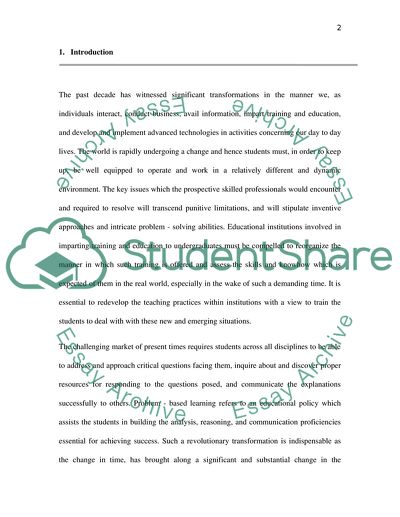Cite this document
(Problem Based Learning in Law Research Paper Example | Topics and Well Written Essays - 2500 words, n.d.)
Problem Based Learning in Law Research Paper Example | Topics and Well Written Essays - 2500 words. Retrieved from https://studentshare.org/law/1724162-legal-skills-learning-portfolio
Problem Based Learning in Law Research Paper Example | Topics and Well Written Essays - 2500 words. Retrieved from https://studentshare.org/law/1724162-legal-skills-learning-portfolio
(Problem Based Learning in Law Research Paper Example | Topics and Well Written Essays - 2500 Words)
Problem Based Learning in Law Research Paper Example | Topics and Well Written Essays - 2500 Words. https://studentshare.org/law/1724162-legal-skills-learning-portfolio.
Problem Based Learning in Law Research Paper Example | Topics and Well Written Essays - 2500 Words. https://studentshare.org/law/1724162-legal-skills-learning-portfolio.
“Problem Based Learning in Law Research Paper Example | Topics and Well Written Essays - 2500 Words”, n.d. https://studentshare.org/law/1724162-legal-skills-learning-portfolio.


